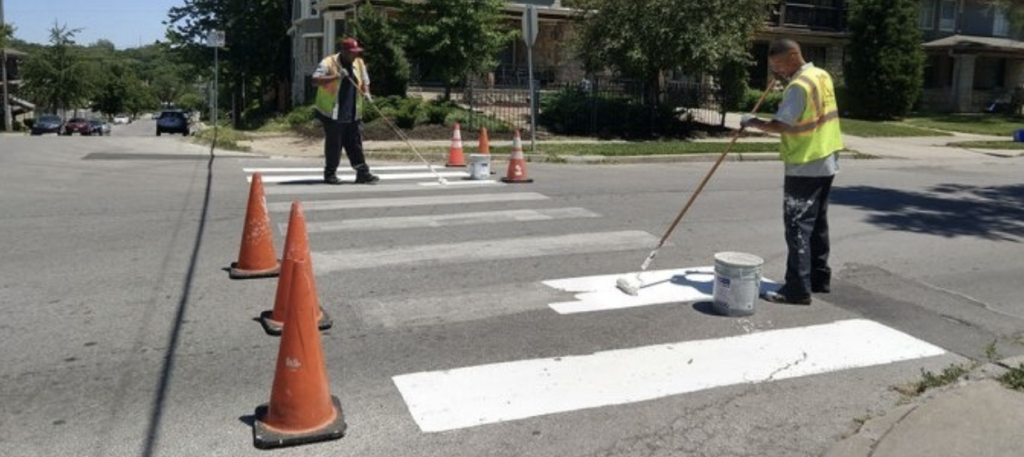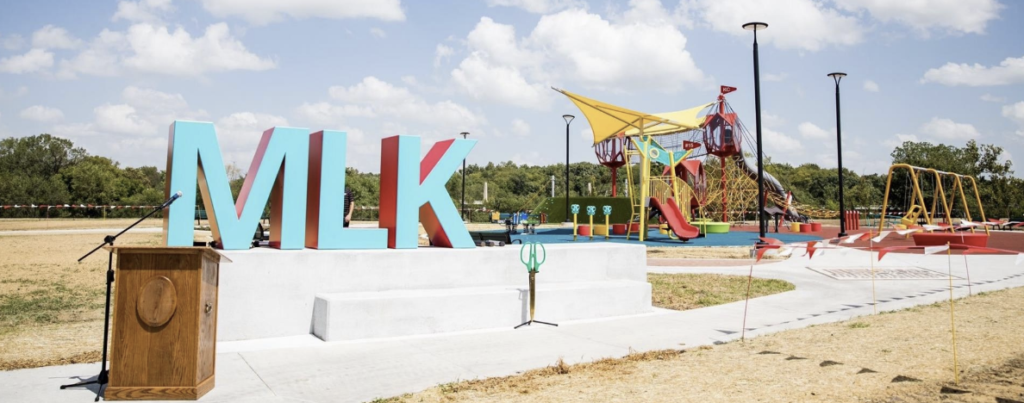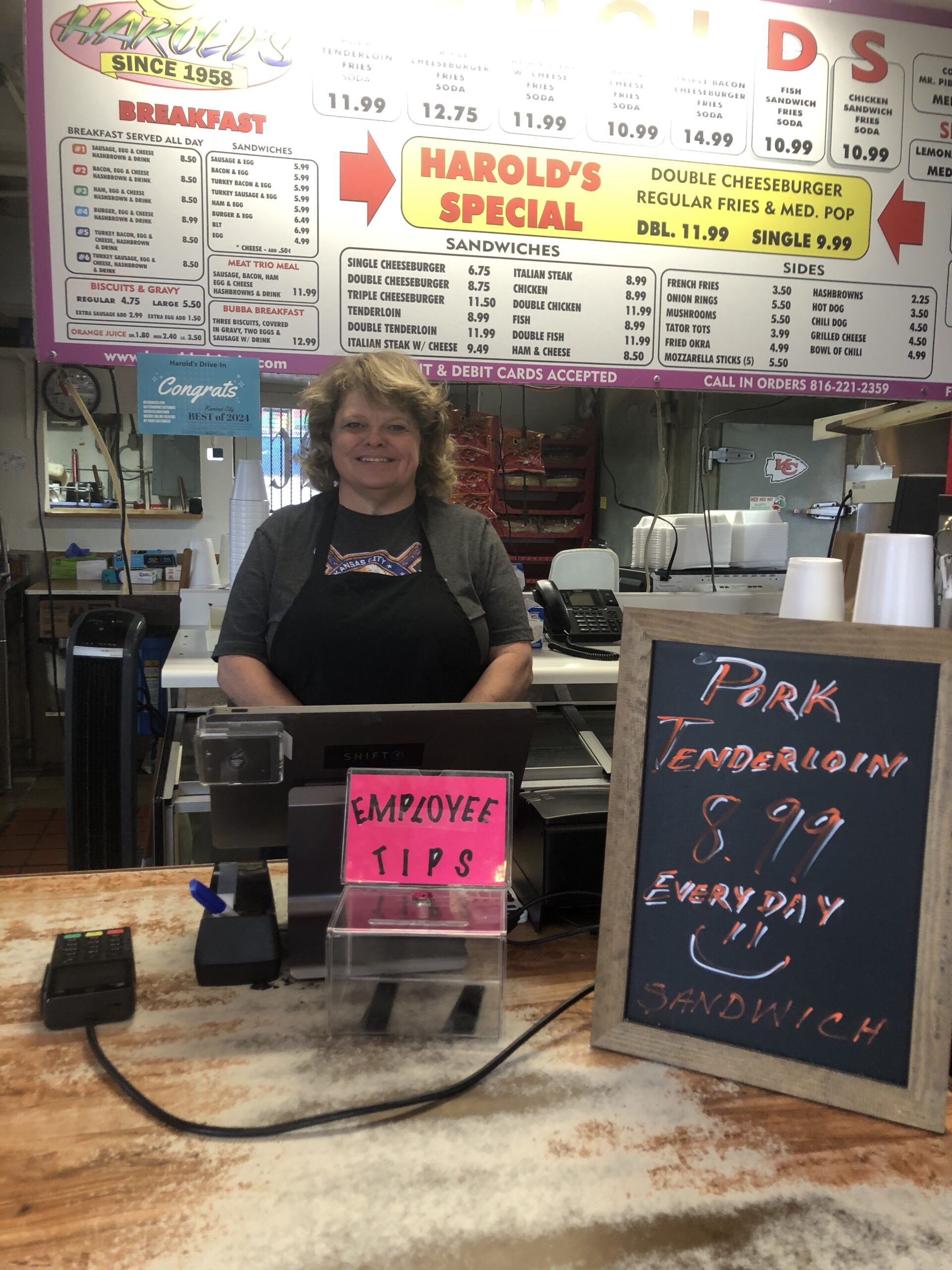
Abby Hoover
Managing Editor
Kansas Citians have the ability to bring funds to their council districts for repairs, reconstruction or development through the Public Improvements Advisory Committee (PIAC), if they know how to navigate the process.
PIAC representatives are appointed by members of the City Council, which were elected on June 20 and inaugurated on August 1. The representatives review PIAC requests submitted for potential funding from the following year’s fiscal budget. The funding for PIAC projects comes from the 1% sales tax.
Applications for PIAC Year 41 are due by September 15. Individuals or groups will receive notification of PIAC’s decision the following April. If a project is selected for funding this cycle, the funds for the projects will be allocated to the appropriate City department after May 1, 2024.
Eligible requests include stormwater drainage/flooding, bridges, public property improvements, street/roadway improvements, municipal building improvements, community centers, street lighting and traffic lights, sidewalks, curbs, and gutters, park facility improvements, monuments and fountains, ball fields and swimming pools.
PIAC staff recommend attending the summer public PIAC hearings. Two hearings are held each summer within each district. Residents will have the opportunity to speak directly to the committee members responsible for selecting projects for their district.
There is a District 4 Public PIAC Hearing on August 30 at 6 p.m. at the Kansas City North Community Center, 3930 Northeast Antioch Rd. A District 3 Public PIAC Hearing is scheduled for September 7 at 6 p.m. at Brush Creek Community Center, 3801 Emanuel Cleaver II Blvd.
In PIAC Year 40, Kansas City received 830 applications. If the City were to complete every project that was submitted, the total cost would have been over $750 million. The amount of money PIAC was able to allocate was $30 million – about $5 million per district. A list of last year’s requests that were considered can be found at kcmo.gov/programs-initiatives/public-improvements-advisory-committee-piac.
Staff recommends that if a request wasn’t chosen, it may still be a worthy endeavor. Residents are encouraged to re-apply. They also encourage applicants to divide larger projects into phases. PIAC does not have enough funds to support multimillion dollar projects.

“Consider asking for funding for just the design stage of the project,” they advise. “Similarly, if you are requesting funds for three new features at a local park, consider breaking them up into separate applications and provide a priority number so the committee knows which of the requested features is most important to the neighborhood.”
Applicants should consider how many people are affected, as committee members will often examine the number of people impacted by requests. Generally, requests that affect more people are more often selected. Neighborhoods should create a petition with names and addresses of all those affected by the request to gain attention, rather than neighbors individually submitting the same request.
Fourth In District City Councilman Eric Bunch appointed Maggie Green, and Fourth At-Large Councilman Crispin Rea appointed Mattie Rhodes President and CEO John Fierro.
Maggie Green is a Senior Transportation Policy Strategist at Burns & McDonnell, but is very familiar with the PIAC process from her time working for Bike Walk KC, as a Public Information Officer In the Public Works Department, and as Media Relations Manager for the City.
“Working on a nonprofit doing a lot of community outreach, and then the almost four years I spent at the City, specifically in the Public Works Department dealing with City infrastructure, I think is positions me with a lot of great experience and a lot of great touch points in the community to kind of understand what some of the coordinates are,” Green said. “I spent a lot of that time working alongside our sidewalk program, so I’m very familiar with that being a high priority for residents, as well as things like park improvements and traffic calming.”
Many of the common PIAC requests that the committee sees, Green worked with on the Public Works side.
“I’m very, very excited to be working now as a PIAC representative, interfacing with neighborhoods to kind of help prioritize and help actually fund some improvements that our community wants to see,” Green said.
She has lived in the Fourth District for 15 years, and is familiar with the mostly urban district’s infrastructure.
“I like to try to get around the city in a multitude of ways,” Green said. “I drive a car, I ride a bike, I walk with my three-year-old, I take the bus and the streetcar occasionally. So I think being able to get out and see the city from a multitude of ways and perspectives kind of allows me to see firsthand some of the infrastructure challenges that we have.”
She relates to neighbors who say their sidewalks are broken or in disrepair because she sees that in her own neighborhood as well.
“I think that’s one of the benefits of having PIAC representatives be residents of the district,” Green said. “Because that does sort of bring a relevance and a relatability to the needs that the different neighborhoods are communicating as well.”
Spring through fall is the busy PIAC season, Green said. The 13 members – 12 appointed by City Council and one chairperson – have met twice so far this new term to get background on the program, where PIAC staff provided overview information and answered questions. Districts have each had at least one public hearing so far.
“That is an opportunity where we can actually interface with residents and neighborhoods that are applying for PIAC and we can hear more about their application, their idea, ask questions, and so those are coming up pretty quick,” Green said. “But that’s a great way for the residents to kind of get involved and meet the PIAC members, meet the council members and discuss more about what infrastructure needs they’re wanting to apply for.”
As the application is already open, the requests are being compiled into lists by district, where they will be reviewed after the deadline.
“I will take time to review them with my counterpart, John Fierro, and kind of look at what are the needs, kind of evaluate, look to see where opportunities are to leverage additional funding or additional city programs,” Green said. “Ultimately, we pare that list down and make a final recommendation towards November, early December timeframe and submit that to the Fourth District council members, Councilmember Rea and Councilmember Bunch.”
Councilmembers have the final say on what PIAC projects are funded in the budget.
Green is excited to see how PIAC can be leveraged with other City programs to make a larger impact.
“I think that John Fierro and myself are going to be approaching our PIAC term as to where we can leverage, whether it’s sidewalk dollars through the GO bond or there’s the new parks bond that voters approved back in November, so there’s some additional money available for park improvements,” Green said. “Of course we have things like Vision Zero and traffic calming and sort of that street safety element, there’s a little bit of City money there as well.
They will be able to look at data to help inform their priorities and leverage the funds for a bigger impact. Green said there’s about $4 or 5 million available for each council district, but a final number will be determined by the City’s budget and the number and type of requests that come in.
“I’m really excited to continue serving the residents of Kansas City in sort of this new capacity for me, formerly being a staff person and now I’m kind of representing residents and helping make that connection to understand what our infrastructure needs are and to help make improvements throughout the city,” Green said. “And so I’m really looking forward to it and very thankful to Councilmember Bunch for the opportunity.”
Third At-Large Councilwoman Melissa Patterson Hazley appointed Darron Story and Third In District Councilwoman Melissa Robinson reappointed Sheron Fulson, legislative staff to State Senator Barbara Washington.
Darron Story, who ran against Hazley for City Council, learned a lot about the Third District during his campaign.
“I was talking to the constituents of the city and heard the things that they needed, the things they desired, the problems they had with the way the City spends their money, and oftentimes people feeling like they’re getting left out,” Story said. “So I’ve heard those stories and then plus, I’ve spent the majority of my time on this planet here in Kansas City, so I’ve seen a lot of things change. It gives me an opportunity to serve so that’s why I have the qualities to do this job and do it effectively.”
He looks forward to working with his colleague Sheron Fulson on the Third District’s infrastructure problems, not just for aesthetics, but for safety.
“People trip and fall on sidewalks, kids riding their trikes or bikes on sidewalks and they get an uneven piece of sidewalk, it could be very serious injury. But we hear a lot of that,” Story said. “Also a lot of our parks are not properly lit so that creates a safety issue there. It also creates a place that may be a haven for drug deals or drug activity, which makes it, again, unsafe. It’s criminal.”
He’s also conscious of development opportunities in the Jazz District and other places.
“I think mainly our philosophy is really about making sure that what we do is impacting safety,” Story said. “Of course, when we do that it beautifies neighborhoods and things like that – so that’s a bonus – but also making sure that when we look around the city, things are equitable.”
Story, a resident of Squire Park, will prioritize making sure funded projects actually get done.
“Oftentimes, we have to prioritize projects that are shovel ready, so we want to be shovel ready,” Story said. “We want to make sure that those things happen. So there’s a lot to it.”
He said at the first Third District PIAC public hearing, they had a few presentations from neighborhoods, but also lots of questions about the process and how to apply.
Residents are encouraged to inquire about their project’s eligibility by contacting the PIAC Office at piac@kcmo.org or (816) 513-1062. Those who submit applications can follow up on the status of their requests by searching through the e-Builder program, emailing or calling the PIAC Office. More information on the PIAC process can be found at www.kcmo.gov/programs-initiatives/public-improvements-advisory-committee-piac.

















